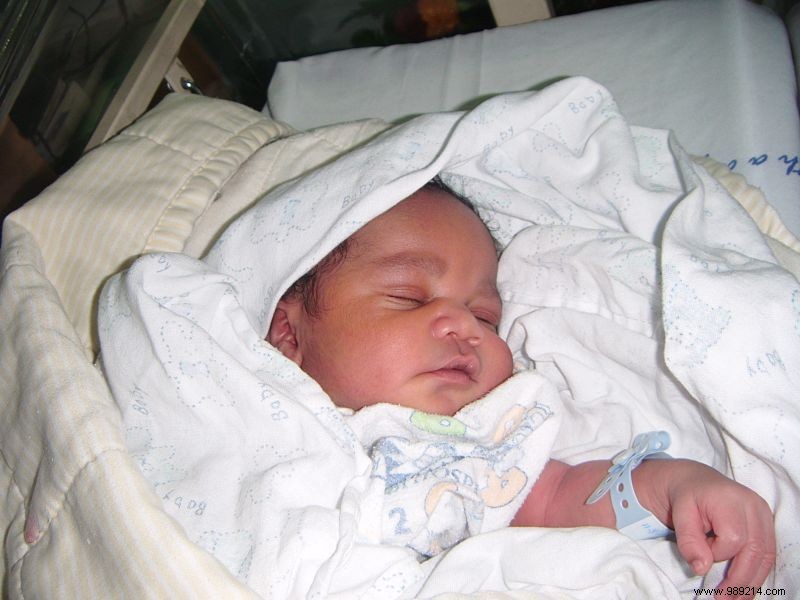While a newborn's very first breath is a very emotional moment, the fact remains that it is an essential act for its survival. In a recent study, US researchers highlighted a specific gene. The latter, controlling autonomous breathing, is activated at the ideal moment.
Baby's first breath from birth is an unforgettable emotional moment for parents. If the child cannot remember it, it should be known that this moment when the lungs receive oxygen for the first time after intrauterine life is crucial for its life. This is a respiratory reflex, for which several types of respiratory neurons are responsible. Among the latter, we find those of the retro-trapezoid nucleus (brain stem) managing the respiratory rhythm as well as the central CO2 respiratory chemoreflex , i.e. the control of arterial CO2 and hydrogen partial pressure.
There is an anomaly in autonomous breathing, which causes Ondine syndrome. This rare disease is characterized by the congenital absence of central control of breathing and diffuse involvement of the autonomic nervous system. Blame it on the Phox2B gene , expressed in the neurons of the retro-trapezoid nucleus and generating too little ventilation at the level of the pulmonary alveoli.

In a study published in the journal Natural on December 2, 2020, researchers from the University of Virginia in Charlottesville (USA) gave the results of their experiments. The scientists used mice to study Pacap, another gene expressed in the neurons of the retro-trapezoid nucleus . This gene codes for the count of a neurotransmitter secreted when the newborn takes its first breath. Without the Pacap gene, the breathing of the child faces a disorder paving the way for the symptoms of sudden infant death syndrome.
According to the study leaders, the Pacap gene codes for a neuropeptide of the same name. Composed of 176 amino acids , the latter is located on chromosome 18. After altering the activity of this gene, the researchers observed that newborn mice had four times more risk to have trouble breathing (apnea). These "pauses" in breathing are dangerous for babies. The researchers also demonstrated a worsening of these disorders depending on the temperature. When it is, for example, 30°C, the frequency of apneas in Pacap mice is three times higher than in regular mice.
In addition, Pacap mice have a central CO2 respiratory chemoreflex 50% reduced than that of normal mice. Nevertheless, the disorders are not due to the absence of the neuropeptide Pacap but rather to the decrease in the expression of PAC1, its receptor. However, when the gene is no longer functional, only 5% of neurons of the retro-trapezoid nucleus can express PAC1. If this dysfunction of the Pacap gene is not in itself fatal for mice, it still increases their risk of sudden death.